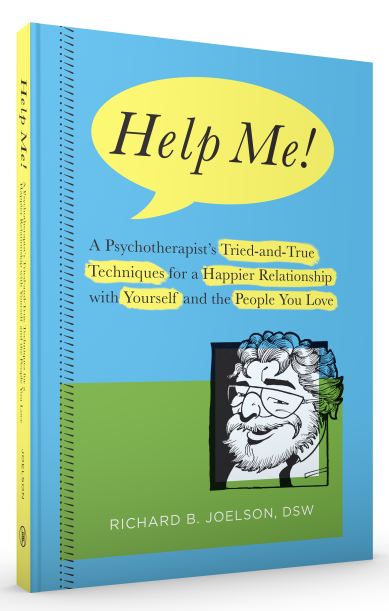Why we’re often our own worst enemies…
After several tries, Jim, age twenty-five, was finally accepted into a prestigious bank management program. Once in the program, however, Jim found it difficult to make time to study. Assignments were handed in late, if even completed at all, and Jim developed severe headaches, all of which eventually led to his being the only trainee to leave the program…just days before he would have been forced to withdraw.
Alice, a first year student in the Ph.D. program in psychology at N.Y.U. had a similar experience. An unusually hardworking and effective person, she found it easier to help others than to help herself. A cherished friend, colleague, and fellow student, Alice consistently failed to handle the demands of the graduate program despite a well-demonstrated ability for academic work. While ably helping fellow students with their work, she neglected or mishandled her papers and presentations were neglected to the point where her status in the program became jeopardized.
Both Jim and Alice exhibit what might be described as self-defeating behaviors – clusters of thoughts, ideas, and actions that often sabotage success at work and in relationships. Self-defeating behaviors include a broad spectrum of self-imposed handicaps and other ploys and tactics that may suggest emotional trouble. Simply stated, a self-defeating behavior is any behavior that keeps someone from reaching their goals or sabotages their ability to be successful in ways that matter to them.
The obvious question that arises in situations like these is Why exactly do these people become their own worst enemies? What would make bright, upwardly mobile, and ambitious individuals self-sabotage?
Many explanations have been proposed for these behaviors. The most traditional analysis claims that people who repeatedly “shoot themselves in the foot” fear success, feel guilty about their behavior, or simply suffer from low self-esteem. Newer explanations include the possibility that self-defeatists have inflated opinions of themselves and that they use self-defeat as a way to take control of a fear of failure. Perhaps Jim had serious doubts about his ability to successfully make it through the bank management program, so his being “too busy” to find the time to study, as well as his headaches, provided excuses that justified his exit without having to risk failing in the actual program.
Alice might have been handling her anxieties about the graduate program by developing a praiseworthy excuse for her own self-doubts and conflicts about her performance. If her sacrifices on behalf of her fellow students led to her inability to successfully complete the program, she could take comfort in the belief that she would have succeeded if only she would have finished. Her self-defeating handicap that protected her from the risk of failure.
Perhaps the best way that someone can stop self-defeating behaviors is to learn to reflect rather than react. When faced with the consequences of negative behavior, the question to ask oneself is, “If I could do this over again, what would I do differently?” The answer may be the most effective way to prevent self-defeat.

